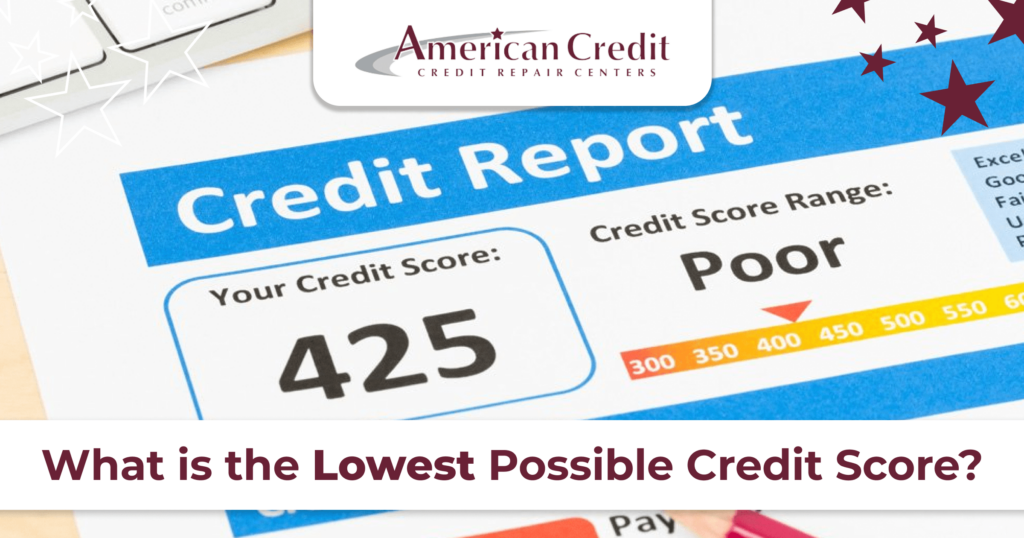A low credit score can make it difficult to obtain a new credit card or qualify for a personal loan, car loan, or mortgage. You may pay higher interest rates, fees, and down payments and security deposits. Most credit scoring models go as high as 850 but, using FICO and VantageScore as examples, the lowest possible credit score you can have is 300.

Only about 0.1% of people in the U.S. have a credit score in the 300 to 350 range. And just a small percentage of consumers have bad or very bad credit. According to Experian, in 2018, only 1% of conventional mortgage borrowers had a FICO score under 600 (based on Ellie Mae data), and only 6% of borrowers of Federal Housing Administration (FHA)-backed mortgages did.
But what would make your credit score drop so low? To answer this question, it’s important to look at what creates a low credit score in the first place. You’d need multiple negative factors to have bad credit, such as:
- Little or No Credit History: Your credit history is how long you’ve been using credit. Those in the 18-to-23-year-old range are most likely to have a minimal credit history, and therefore a lower credit score. A large portion of your score is based on your credit history.
- Late Payments: Missing payments can cause a big drop in your credit score (payment history accounts for 35% of it). If you fail to pay your bills on time, especially if they’re 30 days past due, a late payment may be reported to the credit bureaus.
- High Utilization: Utilization compares the sum of your credit card balances to your available credit. Using too much available credit can cause your credit score to drop. Utilization accounts for 30% of your score.
- Debt Collections: Defaulting on debt can result in your creditor selling your debt to a collection agency. When reported to a credit bureau, this can drop your credit score significantly. And it stays on your report for up to seven years.
- Bankruptcy: A Chapter 13 bankruptcy stays on your report for up to seven years. A Chapter 7 bankruptcy can be listed for up to 10 years. These have a negative effect on your credit score.
What Can I Do About a Low Credit Score?
It’s not likely you’ll have the lowest possible credit score. Nonetheless, if you feel your credit score could be improved, you’re not stuck with a low number. Just paying your bills on time can help; if you struggle to do so, you can set up automated bill pay. Budget for credit card payments and limit the use of credit. Paying down your balances will improve your credit utilization ratio if you keep all accounts open.
Another option is to obtain a secured credit card. It’s backed by a security deposit, so carries a lower risk to the creditor. Using one responsibly can raise your credit score to the point you’ll be able to eventually use unsecured cards. Raising your score not only qualifies you for additional lines of credit. It can also qualify you for a new job, increase your chances of obtaining a mortgage or renting an apartment or even being accepted for cellphone or utility service.
Can Credit Repair Raise My Credit Score?
That depends on your credit situation. The credit bureaus work with a lot of information. It’s not unheard of that one can make a mistake. Negative information can appear accidentally or a detail that should have been removed over time wasn’t. Creditors and credit bureaus have a dispute resolution process, which isn’t always efficient, or effective. At American Credit, we closely examine your credit report for areas of improvement. A pre-litigation process is used to achieve results and improve your credit.
You don’t need to have the lowest possible credit score to feel the pressure. To get started and possibly raise your credit score, contact us online or call (855) 827-3496 for your free consultation.

Recent Comments